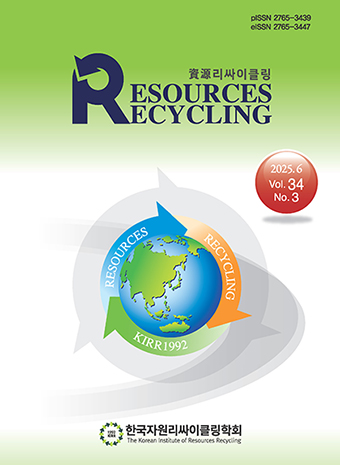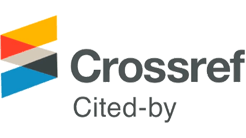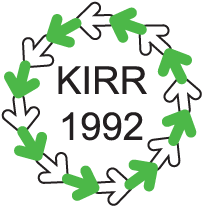Publishing Policies
The Korean Institute of Resources Recycling Ethics Regulations
Established : 2007.06.15.
3rd Revised: 2020.04.03.
Article 1 (Purpose)
The purpose of these regulations is to present the basic principles and goals to ensure universal ethics for the Korean Institute of Resources Recycling (hereinafter “the Institute”) and the publications of the Korean Institute of Resources Recycling so that it can enhance its status and pride and contribute to the development of science and technology.
Article 2 (Subjects)
These regulations apply to researchers participating in the Institute's academic events, research projects, publishing businesses (e.g. academic journals) and educational projects, and researchers who submit research papers.
Article 3 (Scope of Application)
The scope of the Institute's research ethics shall be subject to these regulations unless otherwise specified by a higher level of decree by a state institute regarding the integrity, veracity and accuracy of a specific research field.
Article 4 (Scope of Research Misconduct)
The research misconduct specified in these regulations (hereinafter “Misconduct”) includes forgery, falsification, plagiarism, and misattribution of author during research subject proposal, execution, reporting of results, and presentation, as follows:
- ①Forgery refers to the act of forging nonexistent data or research results.
- ②Falsification refers to the act of modifying research materials, equipment and process or wilfully transforming or deleting data with the aim of distorting research content and results.
- ③Plagiarism refers to the act of using the ideas, research content, or results of others without prior consent or attribution.
- ④Misattribution of author refers to the act of refusing to grant authorship to those who made academic or technological contributions related to research content and results, or the act of granting authorship to those who did not make academic or technological contributions by way of gratitude or of paying respect. The authorship must meet the following four conditions;
- -Substantial contributions to the conception or design of the work; or the acquisition, analysis, or interpretation of data for the work; and
- -Drafting the work or revising it critically for important intellectual content; and
- -Final approval of the version to be published; and
- -Agreement to be accountable for all aspects of the work in ensuring that questions related to the accuracy or integrity of any part of the work are appropriately investigated and resolved.
- ⑤The act of interrupting the investigation of your or others' suspicious misconduct or disserving the informant.
- ⑥Acts that are far beyond acceptable bounds in academic circles.
- ⑦Other misconduct that requires internal investigation or prevention.
Article 5 (Verification)
In principle, misconduct that took place more than 3 years before it was reported shall be excluded, unless the person under investigation requotes the results, resulting in succeeding research.
Article 6 (Protection of Informants' Rights)
- ①The informant refers to the person who informed the Institute of misconduct or of evidence relating to the misconduct.
- ②The informant may submit details of the content and evidence of misconduct (e.g. research subject, title of paper, etc.) in writing or by email, either of which has the same effect.
- ③If the informant wishes to be informed of the investigation procedures and schedule after the report of misconduct, they may request this information from the Institute.
- ④Informants who report false information even if they already knew or were able to know it was false shall be excluded from protection.
Article 7 (Protection of the Rights of the Person Under Investigation)
- ①The person under investigation refers to the person to be investigated for misconduct recognized by Institute or the person who engaged in misconduct during the investigation.
- ②The Institute shall make efforts to avoid infringement of the honor or rights of the person under investigation during the investigation and shall not disclose it until a judgment is made.
- ③If the person under investigation wishes to be informed of the investigation procedures and schedule after the report of misconduct, they may request this from the Institute.
Article 8 (Formation and Rights of Research Ethics Committee)
The Research Ethics Committee of Institute shall be the Board of Directors and the Editorial Board of the Institute. However, the person under investigation shall participate as a committee member. The Institute may request the informant, the person under investigation, the witness and the testifier to attend and make statements or to prepare documents. In such cases, the person under investigation shall comply.
Article 9 (Investigation of Research Misconduct and Reporting)
If any problems with the research ethics relating to the academic activities of Institute are registered, the president of the Institute shall request that the Research Ethics Committee investigate and report results. The Research Ethics Committee shall investigate research misconduct and report the results within 6 months. The report shall include the following:
- ①The contents of the report
- ②The misconduct which is the subject of investigation
- ③The list of Investigation Committee members and minutes
- ④Determining the scope of research misconduct and proof of whether it is true or not
- ⑤Evidence and witnesses
Article 10 (Principles of Verification)
The Research Ethics Committee is responsible for proving the facts of misconduct. The Research Ethics Committee shall provide equal opportunities and rights to the informant and the person under investigation to make statements, raise objections and defend, and notify them of the related procedures in advance. The Board of Directors shall make efforts to ensure the independence and justice of the committee.
Article 11 (Subsequent Actions)
If the results of investigation prove there was no research misconduct, the Institute shall conduct appropriate subsequent action to restore the honor of the researcher. If the results prove there was research misconduct, the Institute shall publicize the results and may conduct the following subsequent actions based on the resolution of the committee according to the gravity of the misconduct.
- ①Request the cancellation or modification of research results
- ②Cancel the publication of research results (send the official documents to relevant institutions to cancel existing publication)
- ③Withdraw the membership of or expel the researcher
- ④Notify the presidents of affiliated institutions
- ⑤Report to the law institute
Article 12 (Compliance and Implementation of Ethics Regulations)
The Institute and publishers shall comply with these regulations and norms specified in this ethics regulations as well as international standards in good faith.
Article 13 (Others)
Matters not specified in this regulation shall be subject to the resolution of the Board of Directors.
<Supplementary Provisions>
- 1.These regulations shall be effective from the date of revision through the review of the Board of Directors of the Institute.
- 2.A separate committee may be established for interpretation or review of these regulations if necessary.


 Resources Recycling
Resources Recycling








